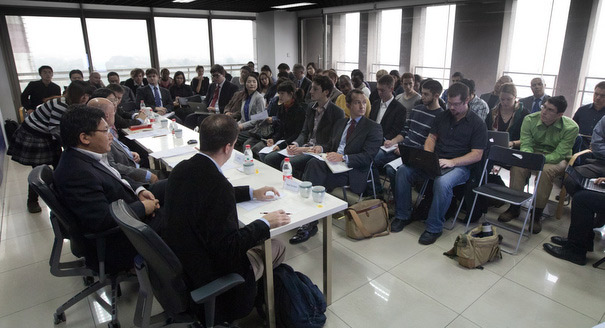Registration
Thank you!
You will receive an email confirming your registration.
IMGXYZ3908IMGZYXThe concept of the “China model” for combining economic and social reform is highly contentious among the international community. Despite criticisms, the China model has been praised for its adaptability.
The Carnegie-Tsinghua Center for Global Policy hosted a roundtable discussion to debate the evolution of Chinese politics and diplomacy. The roundtable featured Martin Jacques, visiting fellow at the London School of Economics; Ardo Hansson, Lead Economist on China for the World Bank; and Carnegie-Tsinghua’s Zhao Kejin. Carnegie-Tsinghua’s Sun Xuefeng moderated.
Highlights of the Discussion
- What is the China Model?: The “China Model,” first proposed by Joshua Cooper Ramo in 2004, describes the Chinese process of reform, explained one panelist. This process emphasizes public ownership, central governmental control of the economy, socialist rule of law, and government regulatory system.. The most notable aspect of this model is China’s commitment to maintain Chinese culture and resist Western influence while integrating into the global community, added another panelist.
- China’s Three Transitions in Diplomacy: Zhao explained that Chinese foreign policy draws upon national history and traditional values. China has transitioned between three major stages of diplomacy: revolutionary diplomacy, developmental diplomacy, and the current peaceful rise. Zhao added that this current stage of diplomacy is different due to the inclusion of scholars, students, media, and multinational corporations in the policymaking process.
- Declining Utility of Previous Diplomatic Strategies: The previous types of diplomacy (revolutionary and developmental) have declined in their utility, Zhao added. Originally, China was focused on adapting to existing international norms. However, as Zhao explained, China’s increasing economic strength and the decline of the West demanded a change in Chinese diplomacy. He suggested that China’s range of global interests is expanding and thus greater emphasis needs to be placed on relations with other developing regions like East Asia, Africa, and Latin America.
